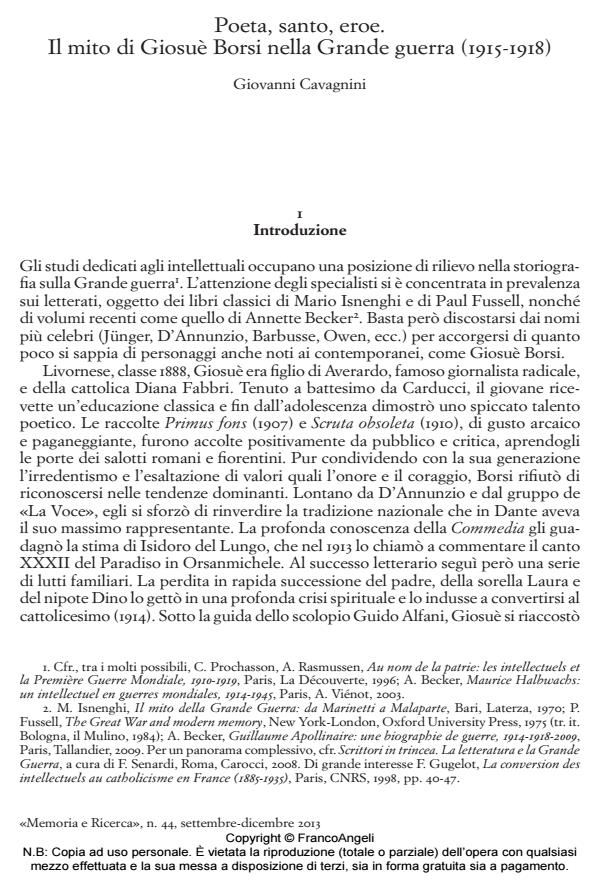Poeta, santo, eroe. Il mito di Giosuè Borsi nella Grande guerra (1915-1918)
Titolo Rivista MEMORIA E RICERCA
Autori/Curatori Giovanni Cavagnini
Anno di pubblicazione 2013 Fascicolo 2013/44
Lingua Italiano Numero pagine 16 P. 107-122 Dimensione file 818 KB
DOI 10.3280/MER2013-044007
Il DOI è il codice a barre della proprietà intellettuale: per saperne di più
clicca qui
Qui sotto puoi vedere in anteprima la prima pagina di questo articolo.
Se questo articolo ti interessa, lo puoi acquistare (e scaricare in formato pdf) seguendo le facili indicazioni per acquistare il download credit. Acquista Download Credits per scaricare questo Articolo in formato PDF

FrancoAngeli è membro della Publishers International Linking Association, Inc (PILA)associazione indipendente e non profit per facilitare (attraverso i servizi tecnologici implementati da CrossRef.org) l’accesso degli studiosi ai contenuti digitali nelle pubblicazioni professionali e scientifiche
A Catholic convert since 1914, the Tuscan poet Giosue Borsi died on the Isonzo battlefield at the end of 1915 and was celebrated by intellectuals, politicians and clergymen as the symbol of the "greater Italy" born in the trenches. While anti-clericals and atheists lost interest after the hanging of Cesare Battisti - a far more fascinating figure to them - Catholics made of Borsi the emblem of the union of faith and patriotism, but also the vehicle of a political and religious project, that considered submission to God and to the Church as the only way to national greatness.
Parole chiave:Catholicism, nationalism, Great War, intellectuals, memory, anti-clericalism
Giovanni Cavagnini, Poeta, santo, eroe. Il mito di Giosuè Borsi nella Grande guerra (1915-1918) in "MEMORIA E RICERCA " 44/2013, pp 107-122, DOI: 10.3280/MER2013-044007